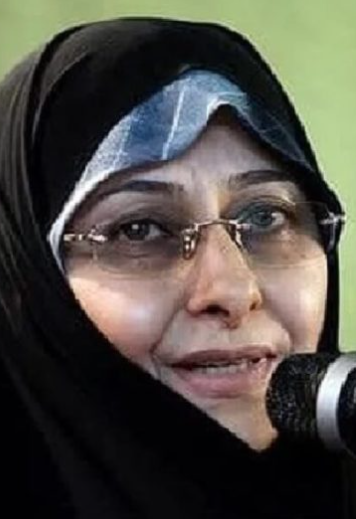September 23, 2022

Social media in Iran have erupted in an uproar since it was revealed that a child of one of President Raisi’s vice presidents has emigrated to Canada and joined a company that sells virtual private networks (VPNs), which many Iranians use to bypass state censorship of the internet.
The revelation has fired up hardliners appalled that the offspring of a senior official would be allowed to live abroad in a country condemned by the regime, while moderates are incensed that the child of an official opposed to an open internet would be selling a product allowing Iranian to get around internet restrictions.
In both cases, the central issue is hypocrisy—an issue that stirs up people all around the world when they see it in their politicians.
The Majlis, dominated by hardliners, has been working on a bill that would hand control of Iran’s internet gateways to the armed forces and criminalize the use of VPNs.
In a series of tweets September 7, Vice President for Women and Family Affairs Ensieh Khazali first denied that her son, Hamid Rezazadeh, had moved to Canada. She said her son’s “temporary” trip there was aimed at furthering “knowledge-based” research. That was a reference to the words of Supreme Leader Ali Khamenehi, who in March dedicated the new Persian year to “knowledge-based productivity” and job creation.
But Iranian social media users were quick to challenge her claim by posting a screen grab of young Rezazadeh’s profile on Rocketreach.co, a website that contains the contact information of millions of professionals worldwide. Rezazadeh’s profile says he is the chief executive officer and founder of Betternet.co, a Vancouver-based company that specializes in VPNs.
Digital security firm Aura, the parent company of Betternet.co, said in emailed comments to Radio Farda, “There is not currently, nor has there ever been, an employee by the name of Hamid Rezazadeh at Betternet.” It said the profile on Rocketreach.co was “fake.”
Mehdi Khazali, the vice president’s brother and a blogger, told Radio Frada that his nephew was the founder of a Canada-based company that sells VPNs. But he did not reveal the name of the company.
Mehdi Khazali told Radio Farda that a son and daughter of his other sister, Kobra Khazali, who chairs the women’s commission of the Supreme Council of the Cultural Revolution, have been living in the United States for several years.
The controversy over Rezazadeh has led some Iranians to call for Ensieh Khazali’s resignation from the vice presidency.
In an op-ed in the reformist Etemad daily on September 11, lawyer Ali Mojtahedzadeh accused Ensieh Khazali of “misleading” the public.
“It became clear that [Khazali’s] son has been living in Canada for the past three years and that he’s been active in the field of VPNs,” he wrote. “Does the vice president consider the production of anti-filtering tools as a ‘knowledge-based’ activity, particularly if this government has been taking very strict measures regarding the internet?” Mojtahedzadeh asked.
The revelations about Rezazadeh have led to renewed criticism of the so-called “aghazadehs,” a term used to describe the privileged children of the elite who are thought to benefit greatly from connections and family ties, including for access to top jobs and state contracts.
Iranian officials who have sent their children to study and work in Europe and North America even as they blast the West have attracted controversy.
“Society sees the hypocrisy and contradictions in state officials constantly attacking the West and talking continuously about the crisis in the West … but at the same time some of their children prefer life in Western countries,” Tehran-based sociologist Mohammad Jalaipur said in a September 11 post on Telegram.
Days before the uproar, the head of the government’s information council, Mahdi Arafati, quoted President Raisi as saying that if the children of Iranian officials move abroad then their parents should leave the country, too.
Earlier this year, a Pasdar general said up to 4,000 relatives of senior government officials live in North America and Europe. General Morteza Miri said the individuals should be “monitored” so they do not have access to senior posts in the Islamic Republic in the future.
The son of a former vice president, Masumeh Ebtekar, who served as a spokeswoman for the students who seized the US Embassy in 1979, is among the children of Iranian officials who live and study in the United States.
“Many have studied in the US, which does not necessarily mean support for US policies,” Ebtekar said in an interview in 2018. “Young people’s views may not be fully in line with their parents.”
When Ali Larijani was the speaker of the Majlis, he came under strong criticism because his daughter was studying to become a physician in the United States.
